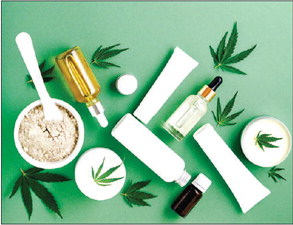Learn the ABCs of CBD


By CJ Blomquist
OptumCare
After all that 2020 brought, a lot of people are looking for new and healthy ways to ease their anxiety. Thus, there are more and more products containing cannabidiol (CBD), from skin lotions to sleeping aides to afternoon treats. But what is it exactly? And does it work?
Here’s the basic rundown on CBD—and what people should keep in mind if they decide to try a product (or two): Active chemicals: CBD is a chemical compound found in hemp and marijuana plants, but it’s not psychoactive. CBD products don’t have THC, the chemical in marijuana that distorts perception. In other words, anyone using a CBD product won’t get high from it. However, there may be trace amounts of THC in some products, so it’s best to try a product while safe at home—just in case.
Budding business: There are a lot of new businesses selling CBD products, but as with any new industry, there aren’t a lot of laws and regulations in place. Manufacturers of these oils, infusions and beauty products don’t have to have their products tested.
Conditions: CBD-based products claim to treat everything from acne to insomnia to joint pain, but there hasn’t really been enough research to support such claims. In fact, the Food and Drug Administration has only approved CBD to treat very specific types of pain and seizures. This doesn’t necessarily mean such products are worthless, though. Thanks to the popularity of these items, more universities are studying the effects of CBD to help determine how and when it is most effective.
Travel safe: While most people are not yet traveling outside the state, anyone heading outside of Southern California should check the laws for their destination, as CBD products are not legal in every county or state.
There’s still a lot unknown about CBD. Some people swear by it, while others say it does nothing. Anyone who decides to try it should check with their primary care doctor first.




